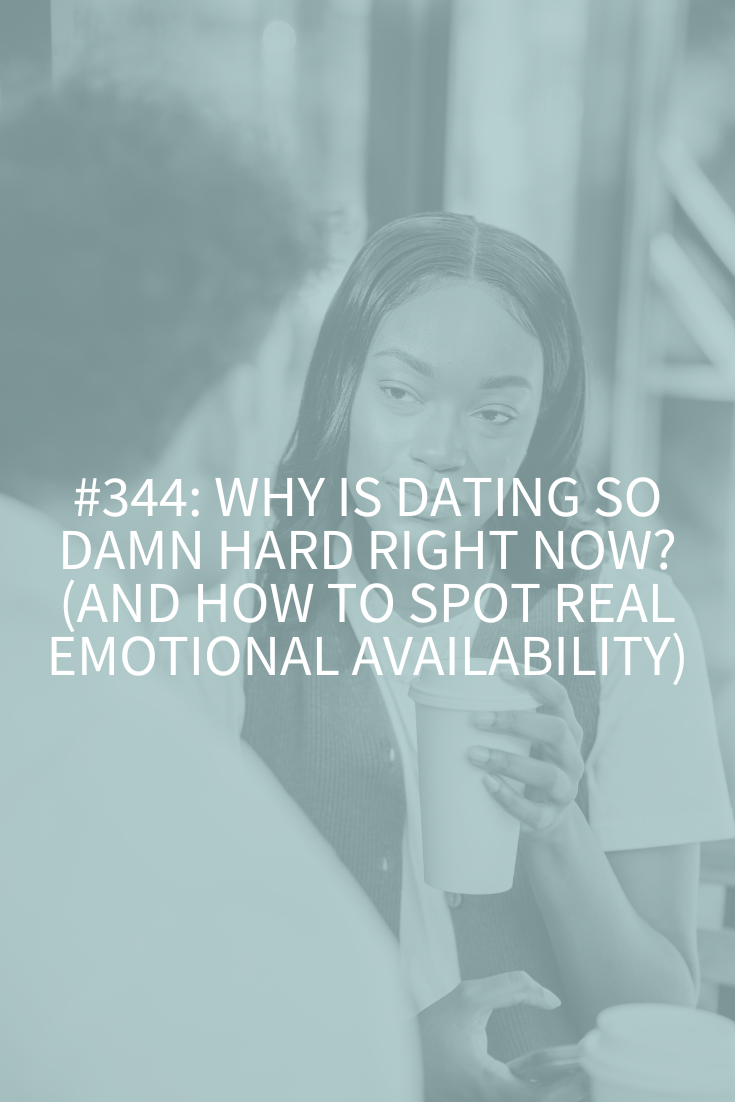
If you look up “blind spot” in the dictionary it says, “An area in which your view is obstructed.” The problem with blind spots in our relationships is that they stop us from exhibiting a healthy perspective. Our judgment and awareness become skewed so we don’t make the healthiest decisions or have the best reactions to situations and people.
We all come into our relationships with different baggage depending on how we grew up. As our personalities developed, so did our coping strategies. These coping strategies resulted in our utilizing different defense mechanisms (often in reaction to our parents and siblings but sometimes because we copied what those same people did – yup, you might truly be “just like your mother.”).
These defense mechanisms, coping strategies and communication skills are all front and center in your relationship right now. The issue is that you likely don’t know it (unless you’ve done a crap load of therapy). To some degree, we’re all fish who don’t know we’re wet, and this results in lots of unhealthy unconscious strategies in our adult relationships – aka: blindspots.
We all have them, but the problem is that we don’t know what our blind spots are (hence their apt name) and end up in the same dysfunctional relationships over and over or we’re in one relationship having the same arguments and frustrations over and over.
These blind spots are all part of our defense mechanisms (what Sigmund Freud called, “ego defenses”).
Defense mechanisms are usually defined as the psychological strategies we unconsciously use to protect ourselves. From what you may ask? Well, from discomfort, anxiety, unacceptable thoughts, feelings, or just about anything we’re not sure about. Again, these are unconscious (at least initially) hence the whole “blind spot” thing.
When we deploy one of our defense mechanisms, we separate ourselves from whatever uncomfortable or unpleasant thing is going on. Sometimes we use them to keep distance between ourselves and feelings of shame or embarrassment. But other times we use them to keep distance between ourselves and feelings like intimacy and connection. Crazy, huh?
For today, we’re going to say that defense mechanisms operate at an unconscious level, keep unpleasant feelings at bay, make good things feel even better and are sitting squarely in our blind spots.
Even though they’re negative in many ways, I do want to point out that we need defense mechanisms. Without them we’d literally implode psychologically. They help us ease into situations and temporarily lessen stress for better coping. The problem is when we get stuck in these reactions and perpetuate an unhealthy system of interaction.
For example, I use humor all the time as a defensive mechanism. When things are tough, I get laughing and cracking jokes (you might not want to sit next to me at a funeral). One might call the way I use humor a positive adaptive defense mechanism, meaning it’s a good thing to use and that I’m not a screw up but I think we all know the truth. J
There are lots of defense mechanisms I’m not going to talk about today, like repression, regression, acting out, dissociation, and compensation (to name a few). Instead, I’m going to cover the seven most common ones I see in my practice. Because these are likely the ones you’re using that are in that damn blind spot and so hurting your relationship without you realizing it.
1. Denial
Denial is likely the one you’ve heard the most about. When something has a huge negative impact emotionally, denial swoops in and blocks certain things from your mind so you can avoid the painful feelings. Denial is NOT lying to yourself. If you’re in denial about something, you actually don’t think whatever’s happening is true, no matter how clear the “evidence” is.
I see this one a lot when people are first getting together. Someone will have lots of evidence that a person isn’t right for them or is cheating or whatever, but they seem to just ignore it no matter how clear the “proof” is.
I also see this with couples around money and spending. For example, I asked a couple not long ago to work on a budget and the response I got was, “Oh, we’ve tried to do those before, but the money doesn’t add up so we just gave that up. Somehow it seems to work anyway.” WHAT?!
2. Projection
This is when you’re feeling something about someone that makes you uncomfortable or look bad. So, you tell yourself instead that they’re feeling it about you. “I love my mother-in-law, she’s the one who doesn’t like me!”
I also see this a lot when one person in a couple is super jealous of another. I often think that the one who’s exhibiting all the jealousy is actually the one either cheating themselves or having untrustworthy thoughts and feelings.
3. Sublimation
This is basically when you redirect strong feelings into something that’s considered positive or safe. Going to the gym or for a run or working all the time are often seen as positive strategies.
In and of themselves they’re healthy and “good” but, it’s when they’re being used to avoid that there’s an issue. If you’re a workaholic because work is a place where you get tons of positive reinforcement and it means you can avoid going home where your partner is unhappy with you or where you’re afraid of taking on something like being a new parent, then it’s an unhealthy coping skill.
Sometimes people will get very upset and go for a long run. That’s great, but if you never address what the initial issue was that got you upset, you’re avoiding creating connection with your partner or whomever you were arguing with. It’s a way to avoid intimacy and connection with your partner.
Music, arts and sports are all common places to redirect. Again, it’s great not to lash out at someone, but it’s not great to avoid connection in your relationships.
4. Compartmentalization
In my experience, compartmentalization comes from some trauma in childhood or an avoidant attachment style.
Basically, it’s when you separate your life into a bunch of little boxes and don’t let those boxes touch. I had a guy who was embezzling money at work but was apparently a “great dad” at home.
It’s this ability to have things in different areas of your life not affect each other. Obviously having an affair, lying, stealing, etc. while seeming “normal” are all ways we compartmentalize.
Obviously, this skill can come in handy if you’ve had a big fight with your partner in the morning and then need to go to work and do a big presentation. If you stood there crying in front of everyone, that would be a big problem, so being able to compartmentalize is important. But when we do it all the time, and with everything, we create distance between ourselves and others and certainly within our own psyche.
5. Intellectualization
If someone asks how you feel and you can only tell them what you’re thinking, you likely do this. Intellectualizing happens when we remove all emotion from a situation and focus on “the facts” and the evidence. There’s often a lot of “he said, she said” in these conversations.
I find myself thinking I’m in the room with two lawyers instead of a couple. It’s great to be in action or think things through of course, but you’ve got to feel the feelings too.
I had a client recently whose father died. His mother was a mess and he immediately jumped into “doing” mode. The problem is that he was so busy organizing and taking care of everyone, he didn’t take care of himself. He never grieved himself and these feelings ended up being displaced which resulted in him blowing up at his employees a month later and not understanding where all the rage had come from.
6. Displacement
This brings us to displacement which is basically when you have a hard day at work and come home and kick the dog. You’ve got a strong, negative emotion and you direct it towards an object or person who doesn’t feel as threatening to you. I often see this when people feel helpless in a situation. That helplessness turns into rage. I always say that rage is anger plus helplessness and people are more comfortable trying to deal with the anger than the helpless feeling.
7. Rationalization
When you rationalize you’re trying to logically justify bad or unacceptable behavior with your own set of facts. When you do this, you can feel better about whatever choice you made, even if you know on another level that what you did wasn’t right.
An extremely dysfunctional use of rationalization would be when someone physically abuses their spouse or child but tells themselves that they had it coming because they were being obnoxious.
The last defense mechanism I see the most is passive aggressive behavior, but that one’s got so much baggage with it that I’m going to do a whole episode on it next week!
What Can You Do About This?
1. Be curious about yourself. Ask those close to you for feedback. Maybe listen to this podcast together and ask what defense mechanisms they see in you. Ask your partner, a sibling, parent, coworker, friend – try to identify three to five people you trust to give you feedback
2. Once you have this feedback, be accountable to yourself. You do this by checking in with your feelings often. These defense mechanisms are about avoidance, often of feelings you’re not even aware of. So, it’s time to start getting in touch with those feelings. I particularly like this list from the Hoffman Institute.
3. Ask your partner to let you know when they see the behavior. There’s an amazing tool you can use for this that I call the Wake Up Word. You can download it below for FREE.






